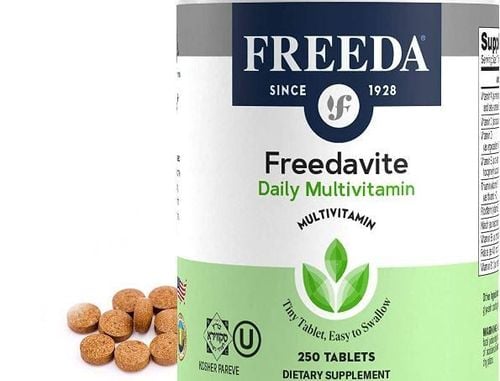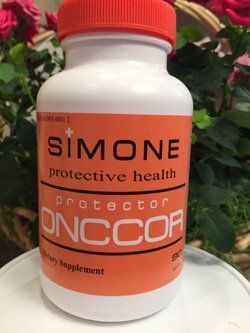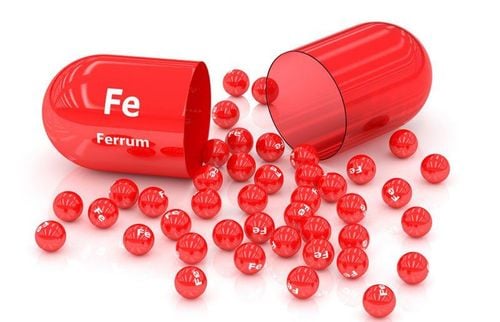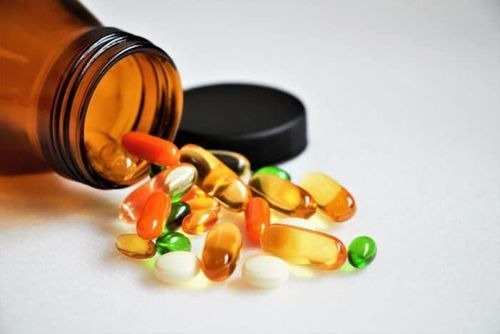This is an automatically translated article.
Article by Doctor Vo Ha Bang Suong - General Internal Medicine - Department of Examination & Internal Medicine - Vinmec Phu Quoc International General Hospital
Vegan diet is the most strict vegetarian diet, the practitioner will only eat foods of plant origin and do not use animal foods or products from them, so it often occurs some micronutrient deficiencies. So what should be done to avoid micronutrient deficiencies in a vegan diet?
1. What is a vegan diet?
There are many vegetarian diets to be followed depending on the goals of the follower. Maybe it's religious, maybe it's because of wanting to improve health. Depending on that purpose, the diet may have some differences. Some vegetarian diets only abstain from 4-legged animal meat such as cows and pigs, they can eat fish, chicken, animal products such as eggs, milk, cheese, butter. For this group, micronutrient deficiencies rarely occur. A popular vegetarian diet is to eat only foods of plant origin, not to eat animals and even animal products, eaters follow this diet strictly in their nutrition ( also known as vegetarianism). Within the scope of today's article, we cover the possible micronutrient deficiencies for this vegetarian group.
Vegetarian (on the target group in question) is a diet in which nutrition is provided mainly from plants. With this diet, vegetarians can avoid consuming too much fat, so a vegetarian diet is proven to bring many health benefits, limiting diseases: Fat obesity, dyslipidemia, improved heart health,... However, the lack of nutrients from animals leads to inadequate supply of essential nutrients, especially micro-organisms. , mineral. To avoid that deficiency, plant-based food sources need to be diversified. When you don't get a complete diet, supplements are an option. You need to pay attention to foods with micronutrients such as vitamin B12, iron, iodin, and omega-3.
MORE: Nutrition pyramid for vegetarians
2. Why do I have micronutrient deficiencies when following a vegan diet?
A full vegetarian diet usually includes lots of vegetables and fruits. These foods are mostly used fresh after harvest, rarely have to go through the stages of processing, preserving and canning for a long time, this is the advantage of this diet. However, there are many micronutrients that are not found in plant-based foods, but only in animal meat and products such as eggs, butter, milk, etc., so the body lacks these nutrients.
Example: Meat and dairy products are natural sources of vitamin B12.
In addition, studies on populations with different nutritional regimens also show deficiencies in other micronutrients such as zinc, protein, selenium and some other micronutrients in people with poor nutritional status. vegan nutrition.
Supplements rich in the above micronutrients are a reasonable choice if you are following a vegan diet. Supplements and functional foods can ensure that vegetarians are provided with adequate nutrients, ensuring health.
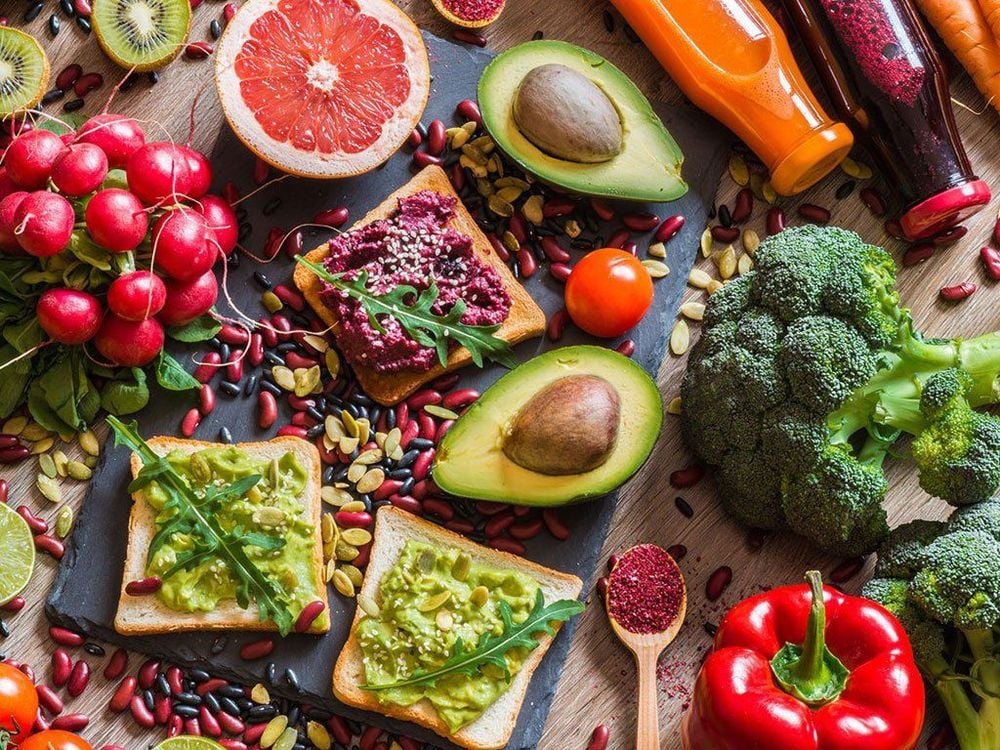
Một chế độ ăn chay đầy đủ thường bao gồm nhiều rau củ và trái cây
3. What signs help you recognize that the body is lacking in micronutrients? How to supplement
The micronutrients that are often lacking when following a vegan diet are: Vitamin B12, iron, iodine, vitamin D3, Calcium, creatine. The health manifestations associated with deficiency are:
3.1. Vitamin B12
Vitamin B12 is provided from animal meats and animal products (butter, milk, eggs). Therefore, with a diet that includes both animals and plants, the body will have enough vitamin B12. However, with a completely plant-based diet, a vitamin B12 deficiency can occur.
According to National Instute Health (NIH), the amount of vitamin B12 needed in adolescents and adults is about 2.4 micrograms/day. Increases to about 2.6 - 2.8micrograms/day in women who are pregnant or breastfeeding.
When vitamin B12 deficiency can appear signs: Feeling tired, weak, light-headed, dizzy when walking, numbness in limbs, decreased memory ability, heavier may be stagnation , perceptual confusion. Reduce appetite, pain, burning mouth, tongue, constipation, weight loss.
The extent of health effects depends on the extent and duration of the deficiency. In fact, the deficiency of a certain micronutrient often affects the absorption and metabolism of other micronutrients, creating coordinated effects on the body.
Vitamin B12 is necessary for the creation and development of red blood cells from the bone marrow. Vitamin B12 deficiency leads to megaloblastic anemia. The same goes for vitamin B9 deficiency, known as folate deficiency.
To avoid the above situation, you should use functional foods with vitamin B12 and other B vitamins to ensure that the body is fully supplied with these vitamins.
3.2. Omega 3
Omega 3 is known for many benefits, including helping to maintain brain health and heart health. When the body does not have enough Omega 3 can lead to skin problems such as itching, burning, this is the cause of edema. There are three main types of Omega 3: Alpha Linoleic Acid (ALA), Docosahexaenoic Acid (DHA) and Eicosapentaenoic Acid (EPA). In the body, ALA can be converted to DHA and EPA in small amounts. Therefore, some people often focus on eating foods high in ALA. However, this conversion is very slow, only about 5-8% of ALA is converted to EPA and a maximum of 5% is converted to DHA.
Plant foods found to be high in Omega 3 ALA include: Nuts like walnuts, nuts like chia seeds, flaxseeds. Vegetable oils: like Canola oil. Food supplements from cereals, fruit juices.
However, currently, how much DHA and EPA your body needs to maintain physical stability has not been mentioned exactly. Therefore, you should maintain a variety of food sources. Some supplements can be misleading, such as focusing only on foods rich in ALA, a type of fat that is concentrated in foods such as canola oil, soybeans, and nuts, which interferes with the conversion of ALA to DHA and EPA.
3.3. Iodin
Iodine is necessary for the metabolism and creation of thyroid hormones. Ensure stable metabolism and body activities. The body cannot make iodine on its own, but must be obtained from food. Adults need about 150 micrograms/day.
Iodine deficiency can cause local goiter, hypothyroidism with manifestations: fatigue, myxedema, sluggishness, hypothermia, bradycardia. The extent of the effect on health depends on the extent of the deficiency and the duration of the deficiency. You can find foods that are suitable for a vegetarian diet high in iodine from: Iodine salt. Soy milk, seaweed, cranberries, potatoes, plums...
3.4. Iron
Iron is an important micro-mineral for the body, in which it is an important component that works with blood cells to carry oxygen throughout the body. Iron requirements in adults are about 8mg/day for men and about 18mg/day for women.Iron deficiency will lead to anemia, which limits the oxygen supply to all body organs. Manifested by symptoms: Blue skin, pale mucous membranes, fatigue, feeling of exhaustion, dizziness, dizziness, decreased concentration, memory and increased likelihood of infection.
Heme-Fe structure is the structure found in meats (especially red meat), fish, eggs,... so it can be easily absorbed by the body. In plant-based foods containing Nonheme-Fe, it is more difficult for the body to absorb.
Some plants can have a lot of iron such as: Nuts (fruits), dried fruits like raisins. Legumes, lentils, peas and fortified cereals.
If you have symptoms of iron deficiency, you should check with blood test, serum iron test to supplement iron in time.
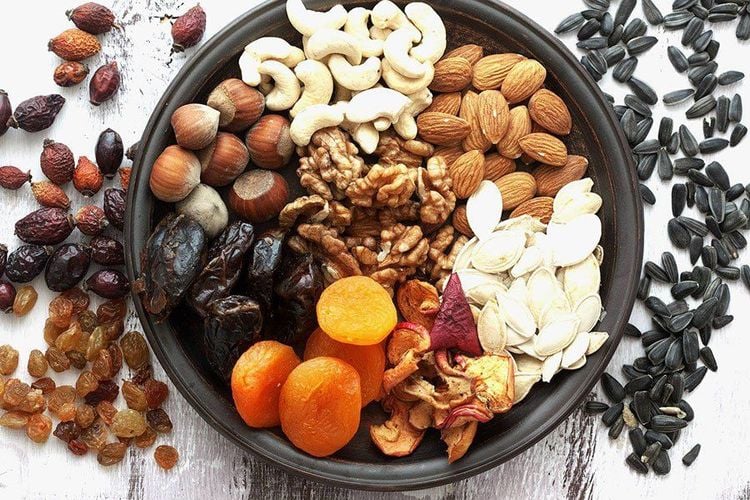
Bổ sung thực vật nhiều sắt như các loại hạt (quả), quả sấy khô vào chế độ ăn thuần chay
3.5. Vitamin D3
Vitamin D3 plays an important role in calcium absorption to ensure strong bones, fight chronic bone diseases as well as prevent osteoporosis.The body can get vitamin D from sunlight. In addition, some foods also contain vitamin D, such as cereals and milk. There are two main types of vitamin D, D2 and D3. Vitamin D3 in the body is high and has a shorter effect than vitamin D2. However, animal products like milk have only vitamin D3. Therefore, it is necessary to supplement vitamin D adequately with functional foods with vitamin D ingredients.
3.6. Calcium
Calcium is an essential mineral for bones and muscles. A calcium deficiency can lead to bone problems such as osteoporosis or fractures. Symptoms of calcium deficiency such as: Numbness in hands and feet. Cardiac arrhythmias, convulsions.
You can find some calcium-rich vegetables like broccoli, cabbage. Kale, mustard, legumes, peas, soybeans and soy products. Supplements and calcium-containing supplements are also a reasonable choice when you are a person following a vegan diet but it is not enough.
3.7. Creatine
Creatine comes from many foods of animal origin. Creatine helps create energy for physical activity. Accordingly, people following a vegan diet often have lower serum creatine levels than those who eat. In fact, creatine is not an essential nutrient but it can improve athletic endurance.
You can add creatine-containing functional foods to avoid deficiencies when the diet is inadequate.
For those following a vegan diet, to avoid micronutrient deficiencies in the diet, you should note:
Vitamin B12 supplementation with supplements or functional foods with added vitamin B12 in it . Diversify foods. In addition, you should also have regular health check-ups to detect health problems early. Consult with a nutritionist for advice on a reasonable and complete diet.
Please dial HOTLINE for more information or register for an appointment HERE. Download MyVinmec app to make appointments faster and to manage your bookings easily.




